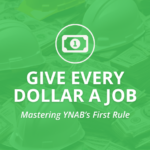Zero-Based Budgeting Simplified: How It Works & Why You Should Try It
- By Brett Schaffner
- In Budgeting
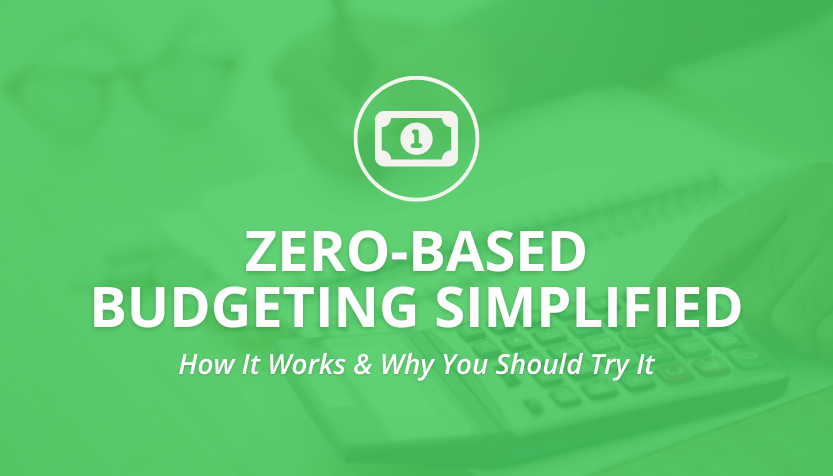
Have you ever looked at your bank account at the end of the month and wondered where all your hard-earned money actually went? It’s like a terrible magic trick – now you see it, now you don’t! If you are tired of this disappearing act, zero-based budgeting might just be the tool you need. Put on your financial wizard hat, because we’re about to dive deep into the world of zero-based budgeting, where every dollar has a purpose and a place.
What is Zero-Based Budgeting?
Zero-based budgeting turns traditional budgeting on its head. Unlike traditional budgeting where you start with what you expect to make each month, list your expenses and then compare if your paycheck amount is more than what you expect to spend; zero-based budgeting works with the dollars you have in your bank account right now. Starting with real money, you assign a job to every single dollar you have, creating a plan for your spending that is based on your priorities.
Zero-based budgeting is about ensuring that every dollar is working hard for you, whether it is covering bills, growing your savings, or indulging in a well-deserved, fully-funded treat or vacation.
How does Zero-Based Budgeting Work?
Creating a zero-based budget involves a few straightforward steps:
- Add up your monies: Begin by assessing how much money you actually have available right now – checking accounts, savings accounts, cash, coins in the couch cushions. Add it all up.
- List your expenses: Write a list of all of your monthly expenses – everything from major bills like rent and utilities to smaller items like groceries and subscriptions.
- Assign Every Dollar a Job: Allocate each dollar in your account to a specific expense, savings goal, debt payment, or investment. The aim is to assign every dollar you have until you reach zero. Once your money from Step 1 minus your assigned expenses equals zero, you’re finished!
- Live Life & Record Expenses: As you spend money, subtract the amount spent from the expense in your budget. Now all spending is planned and budgeted for. For example, if you set aside $300 for groceries and you spent $50 this week at the store, you record that $50 spent and know, with confidence, you can still spend $250 at the store this month without taking money from other priorities.
Benefits of Zero-Based Budgeting
- Total Control and Awareness: Zero-based budgeting makes you hyper-aware of your spending, turning you into the financial detective of your own life.
- Effective Prioritization: It encourages you to prioritize your financial goals. Whether you’re focusing on debt reduction or saving for a dream vacation, zero-based budgeting forces you to make intentional decisions about how you want to spend your money.
- Flexibility: Life changes and so should your budget. Zero-based budgeting is adaptable, allowing you to reallocate funds as your financial situation changes throughout the month.
- No Hypotheticals: Traditional budgeting often involves estimating future income and expenses, but life is full of surprises. Maybe your paycheck is less than expected, your electricity costs more this month, or an unexpected medical bill hits. Zero-based budgeting provides a clear view of your current financial situation, showing where your money is going, its priorities and where adjustments might be necessary to cope with life’s unpredictability.
How Zero-Based Budgeting Differs from Traditional Budgeting
Think of traditional budgeting like microwaving a frozen meal – convenient and predictable but not always what you want and you can make no changes to the ingredients. Zero-based budgeting, however, is like preparing a fresh meal. It requires more effort but ultimately gives you exactly what you want and need at that moment.
In traditional budgeting, you might rely on expected income and past months’ spending patterns, which can lead to overspending or underestimating needs (or overestimating income). Zero-based budgeting keeps you engaged, requiring a fresh look at your finances each month based on the money you actually have. You check in with your budget (i.e. spending plan) regularly before purchasing and can make adjustments as life’s curveballs come at you.
TRY YNAB FREE FOR 34-DAYS
Why Should You Try Zero-Based Budgeting?
- More Control Over Your Money: Every dollar is given a job and used to its fullest potential.
- Accomplish Your Goals Faster: By focusing your budget on your current priorities, you can reach your financial goals even faster.
- Better Financial Health: By being aware of and actually involved in your spending plan, it fosters spending aligned with your priorities which leads to increased savings and reduced frivolous spending.
Wrapping Up
Zero-based budgeting might sound daunting – like assembling IKEA furniture with a cryptic instruction manual. But once you get the hang of it, it’s a game-changer for managing your finances. It encourages you to make conscious choices about how you spend your money, aligning your financial resources with your dreams and goals. So, why not give it a try? Who knows, you might just find that managing your money can be as enjoyable as spending it – well, almost!
Looking for extra help?
A YNAB Budget Coach could be the key to your success!
- Share:
You may also like
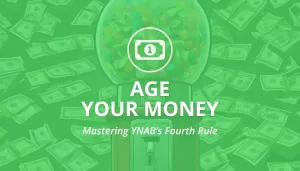
Age Your Money: Mastering YNAB’s Fourth Rule
- September 28, 2024
- by Brett Schaffner
- in Budgeting
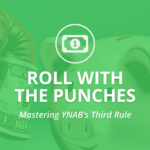
Roll With The Punches: Mastering YNAB’s Third Rule
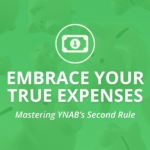
Embrace Your True Expenses: Mastering YNAB’s Second Rule
